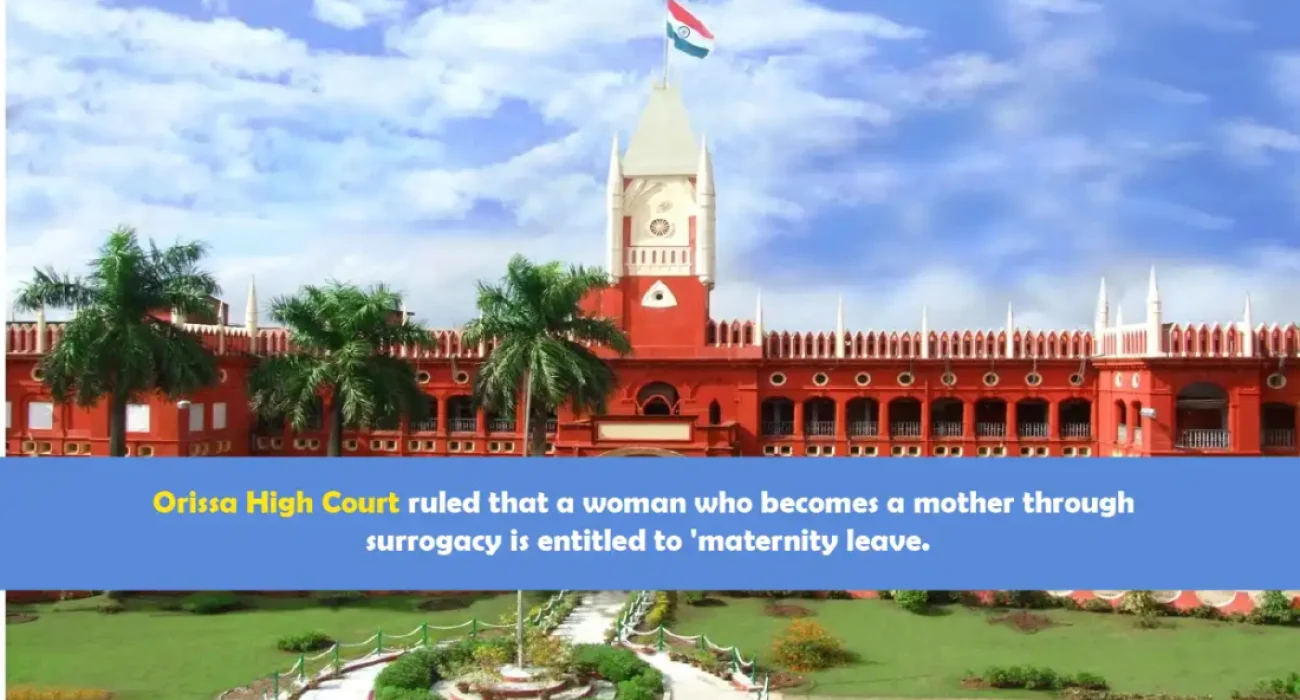

Table of Contents
ToggleThe petitioner, a government employee in the Odisha Finance Service, challenged the decision of the Finance Department and the General Administration & Public Grievance (G.A & P.G.) Department, which denied her maternity leave after the birth of her child through surrogacy. The petitioner had joined the Orissa Finance Service in 1995 and served in various departments, ultimately becoming the Financial Advisor of the Odisha State Police Housing Welfare Corporation. After struggling to conceive, the petitioner opted for gestational surrogacy, resulting in the birth of her child on October 25, 2018. She was initially granted maternity leave, followed by earned leave, but the Finance Department later questioned the validity of the leave period, citing the lack of specific provisions for maternity leave in cases of surrogacy.
The petitioner argued that the term “maternity” in the Odisha Service Code should be interpreted to include motherhood attained through surrogacy. She claimed that denying maternity leave to a mother who had a child through surrogacy violated her constitutional rights under Articles 14 and 16, which guarantee equality before the law and equal protection of the law. The petitioner emphasized that the bond between a mother and her newborn child, regardless of how the child was conceived, is crucial and that maternity leave is necessary for both the mother’s recovery and the child’s development.
The respondents, represented by the Finance Department, contended that the existing rules under the Odisha Service Code did not provide for maternity leave in cases of surrogacy. They argued that while the rules allowed maternity leave for natural childbirth and adoption, there was no provision for granting leave to mothers who had children through surrogacy. The respondents maintained that the petitioner’s leave request was not supported by the existing legal framework and, therefore, should not be granted.
The court observed that the term “maternity” should be interpreted broadly to include motherhood attained through surrogacy. It noted that advancements in medical science, such as Assisted Reproductive Technology (ART), have expanded the ways in which individuals can become parents. The court referenced the Rajasthan High Court’s decision in Smt. Chanda Keswani v. State of Rajasthan and emphasized that denying maternity leave to a mother who had a child through surrogacy would be discriminatory and violate her constitutional rights. The court highlighted that the purpose of maternity leave is to protect the dignity of motherhood and to ensure the well-being of both the mother and the child, regardless of how the child was conceived.
The court ruled in favour of the petitioner, holding that she was entitled to maternity leave under the Odisha Service Code, even though her child was born through surrogacy. The court quashed the Finance Department’s letter dated November 15, 2019, and the G.A & P.G. Department’s letter dated July 6, 2020, which had denied the petitioner her rightful leave. The court ordered that maternity leave be granted to the petitioner, thereby ensuring equal treatment for all mothers, regardless of how they become parents.
IAW resources
Browse our help directory